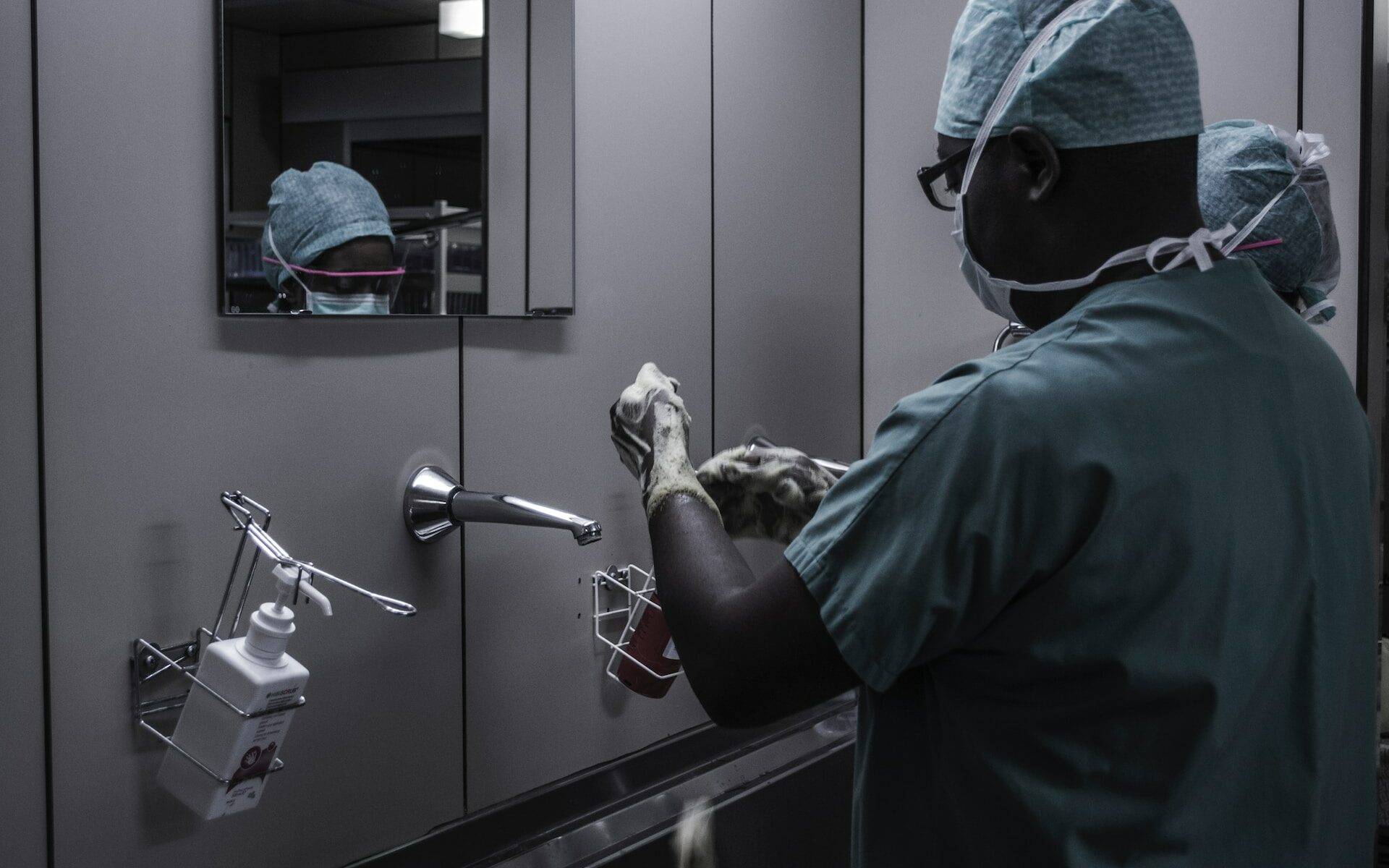If you’re seeking legal advice for your mental health concerns but are unable to afford a lawyer, don’t worry – there’s hope. This article will provide you with valuable tips on how to find a pro bono mental health lawyer who can assist you at no cost. From exploring legal aid organizations to reaching out to local bar associations, you’ll discover several avenues to access the legal support you need. With the help of a pro bono mental health lawyer, you can navigate the complex legal landscape and advocate for your mental well-being without the financial burden.

Understanding Pro Bono Mental Health Law
What is Pro Bono Mental Health Law?
Pro bono mental health law refers to legal services provided free of charge by lawyers to individuals who are facing mental health issues and require legal assistance. These lawyers volunteer their time and expertise to help those who may not have the financial means to hire a lawyer. Pro bono mental health law covers a wide range of legal matters, including but not limited to, mental health treatment, discrimination, involuntary commitment, guardianship, and patient rights.
Importance of Pro Bono Mental Health Lawyers
Pro bono mental health lawyers play a crucial role in ensuring that individuals with mental health challenges have access to the legal support they need. Mental health issues can have a significant impact on a person’s life, and navigating the legal system can be complex and overwhelming. Pro bono lawyers specializing in mental health law provide guidance and representation to individuals who may otherwise struggle to navigate the legal complexities on their own. Their services help protect the rights and well-being of those facing mental health challenges.
Determining Whether You Need a Pro Bono Mental Health Lawyer
Recognizing the Need for Legal Assistance
Recognizing when you need the assistance of a pro bono mental health lawyer is the first step towards accessing the help you require. There are various situations where legal assistance may be necessary, such as:
- Wrongful denial of mental health treatment coverage by insurance companies.
- Discrimination or violation of rights within mental health facilities or workplaces.
- Challenging involuntary commitment or seeking alternatives to hospitalization.
- Navigating the complex legal process of obtaining guardianship for individuals with mental disabilities.
- Advocating for your rights as a patient and ensuring you receive appropriate mental health services.
If you find yourself facing any of these situations, it may be beneficial to seek the assistance of a pro bono mental health lawyer.
Assessing Your Financial Situation
Before seeking a pro bono mental health lawyer, it is essential to assess your financial situation to determine if you qualify for their services. Pro bono legal assistance is typically provided to individuals who cannot afford to hire a private lawyer. Legal aid organizations often have income eligibility requirements, and it is crucial to determine if your income falls within their guidelines. Be prepared to provide documentation of your financial situation when applying for pro bono legal services.
Researching Pro Bono Mental Health Lawyers
Start with Local Legal Aid Organizations
Local legal aid organizations are excellent resources for finding pro bono mental health lawyers. These organizations typically have a network of attorneys who volunteer their time to provide legal assistance to those in need. Start by contacting your nearest legal aid office and inquire about their pro bono mental health law services. They can provide information on available lawyers and guide you through the process of accessing their services.
Contact Mental Health Advocacy Groups
Another effective way to find pro bono mental health lawyers is by reaching out to mental health advocacy groups. These organizations advocate for the rights of individuals with mental health issues and often have ties to pro bono lawyers specializing in mental health law. They can provide recommendations and connect you with lawyers who have expertise in the specific kind of legal assistance you require. Don’t hesitate to leverage these resources for guidance and support.
Utilizing Online Resources
Explore Pro Bono Legal Directories
Online pro bono legal directories are valuable tools for finding pro bono mental health lawyers. These directories provide listings of lawyers who are willing to offer their services for free or at a significantly reduced rate. Websites such as Pro Bono Net and the American Bar Association’s Directory of Pro Bono Programs allow you to search for lawyers based on location and specific legal needs. Take advantage of these directories to find reputable pro bono mental health lawyers in your area.
Visit Legal Information Websites
Legal information websites can also be helpful in your search for pro bono mental health lawyers. Websites like FindLaw and Nolo provide comprehensive legal information and resources, including directories of pro bono lawyers. These websites often have user-friendly search functions that allow you to filter your search based on location and practice area. Take the time to explore these websites and gather information on potential pro bono lawyers who can assist with your mental health-related legal issues.

Networking and Seeking Referrals
Tap into Your Personal Network
Networking within your personal circle can be a valuable method of finding pro bono mental health lawyers. Reach out to friends, family, and acquaintances who may have experience or knowledge in the field of mental health law. They may be able to provide recommendations or connect you with lawyers who have expertise in the specific legal issues you are facing. Personal referrals can be a reliable way to find trustworthy pro bono lawyers who are passionate about helping individuals with mental health challenges.
Contact Mental Health Professionals
Mental health professionals, such as therapists, counselors, or psychiatrists, can be excellent resources for finding pro bono mental health lawyers. These professionals often have connections within the legal community and may be aware of lawyers with a commitment to providing pro bono services. Reach out to your mental health provider and ask for their recommendations or contacts in the legal field. Establishing a collaborative relationship between your mental health professional and a pro bono lawyer can greatly benefit your case.
Contacting Legal Aid Organizations
Understanding Different Types of Legal Aid Organizations
There are various types of legal aid organizations, each with its specific areas of focus and eligibility criteria. It is essential to understand the differences between these organizations to determine which one is most suitable for your needs. Some common types of legal aid organizations include:
- Nonprofit legal aid organizations: These organizations offer free or low-cost legal services to individuals who meet their income guidelines.
- Pro bono programs within law firms: Many law firms have pro bono programs that provide free legal services to individuals in need, including those with mental health challenges.
- Bar association-sponsored programs: State and local bar associations often have pro bono programs that connect individuals with lawyers who can provide free or reduced-cost legal assistance.
Researching and reaching out to these different types of legal aid organizations can help you find the right resources and support for your specific legal needs.
Gathering Necessary Information
When contacting legal aid organizations, make sure to gather and organize all the necessary information to streamline the process. This may include proof of income, identification documents, details of your legal issue, and any relevant supporting documentation. Having this information readily available will help the organization assess your eligibility and expedite the process of connecting you with a pro bono mental health lawyer.

Preparing for Your Initial Appointment
Organizing Relevant Documents and Information
Before your initial appointment with a pro bono mental health lawyer, it is essential to organize and gather all relevant documents and information related to your case. This may include medical records, correspondence with mental health facilities or employers, insurance policies, and any other relevant documents that can support your legal claim or situation. Having these documents readily available during your appointment will allow the lawyer to evaluate your case more effectively and provide informed guidance.
Formulating a List of Questions
Preparing a list of questions beforehand will ensure that you make the most of your initial appointment with a pro bono mental health lawyer. Consider what information you need to gather and what concerns or challenges you would like to address. Some potential questions could include:
- What are my legal rights in this specific situation?
- What legal options do I have to address my mental health-related legal issue?
- What is the potential timeline for resolving my case?
- What are the qualifications and experience of the pro bono lawyer I am meeting with?
- How will communication and updates between myself and the lawyer be handled?
Writing down these questions and bringing them with you to your appointment will ensure that you receive the information and guidance you need.
Meeting with Potential pro bono Lawyers
Presenting Your Case
During your initial meeting with a potential pro bono mental health lawyer, it is essential to present your case clearly and concisely. Provide a detailed account of your situation, including the facts, events, and any challenges you are facing. Be honest and transparent about your needs, concerns, and objectives. The lawyer will use this information to assess the strengths and weaknesses of your case and determine the best course of action.
Discussing Fees and Availability
While pro bono mental health lawyers provide their services for free, it is crucial to discuss any potential fees associated with your case. Some expenses, such as court filing fees or expert witness fees, may still need to be covered. Make sure to have an open and honest conversation about these potential costs and clarify what expenses, if any, you may be responsible for. Additionally, discuss the lawyer’s availability and potential timelines for working on your case. Understanding these details will help manage expectations and establish a clear working relationship.
Applying for Legal Aid
Gathering Required Documentation
To apply for legal aid, you will need to gather specific documents and information as required by the legal aid organization you are working with. This may include proof of income, identification documents, bank statements, tax returns, and any relevant documentation related to your case. Thoroughly review the application requirements provided by the legal aid organization, and ensure that you have all the necessary information available before submitting your application.
Completing the Application Process
The application process for legal aid may vary depending on the organization. It typically involves completing an application form provided by the organization and submitting all required documentation. It is essential to be thorough and accurate when filling out the application to ensure that your eligibility for legal aid is properly assessed. Once your application is submitted, the organization will review your information and determine if you meet the necessary criteria for pro bono legal assistance.
Understanding the Limitations of Pro Bono Legal Services
Limited Resources
Pro bono legal services are provided by lawyers who volunteer their time and expertise, often with limited resources. This means that there may be a limited number of pro bono mental health lawyers available, and there may be a waiting period for their services. It is important to be patient and understanding of these limitations while also actively pursuing alternative options for legal assistance if necessary.
Qualification Criteria
Legal aid organizations often have qualification criteria that determine who is eligible to receive pro bono legal services. These criteria typically include income guidelines, the type of legal issue, and the availability of pro bono lawyers. It is essential to review the qualification criteria of the specific organization you are applying to and ensure that you meet the necessary requirements. If you are ineligible for pro bono services, explore other avenues, such as sliding-scale fee arrangements or legal clinics, where affordable legal assistance may be available.
In conclusion, pro bono mental health lawyers offer invaluable support to individuals facing mental health-related legal issues. By recognizing the need for legal assistance, conducting thorough research, networking, and contacting legal aid organizations, you can access the crucial legal support needed to navigate the complex landscape of mental health law. Remember to prepare for your appointments, apply for legal aid if eligible, and understand the limitations of pro bono services. With the help of a pro bono mental health lawyer, you can protect your rights and ensure your mental health needs are met.

